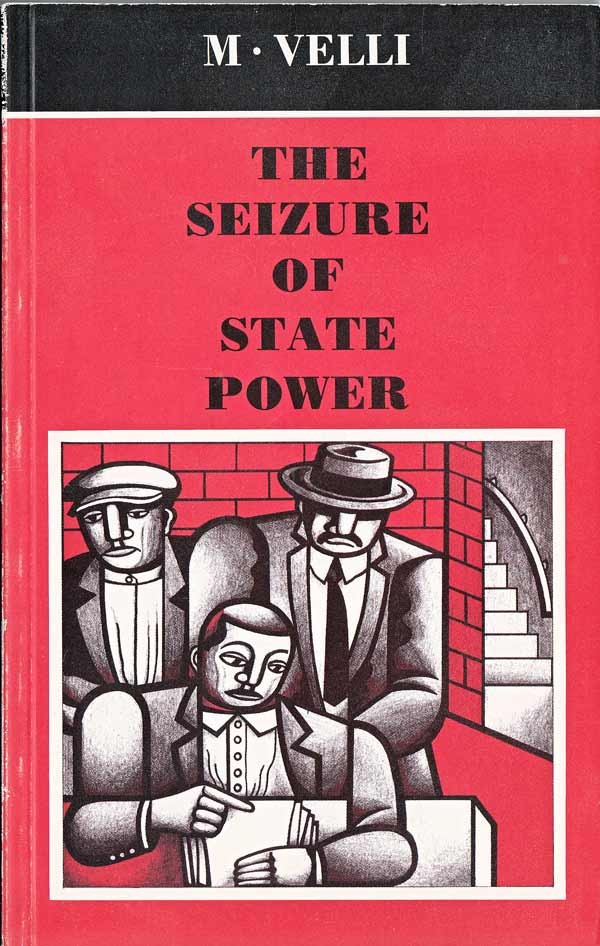The Seizure of State Power
£3.45
The Seizure of State Power by M.Velli first appeared 1972 as part [III] of Manual for Revolutionary Leaders.
Description
The Seizure of State Power first appeared 1972 as part [III] of Manual for Revolutionary Leaders.
The Sources of M. Velli’s Thought
M. Velli’s Thought is a synthesis of the ideas of the major revolutionary leaders of the age. These ideas are printed in italics in the preceding text.
— the above taken from inside the book
[NB – There doesn’t appear to be much written about this book but suffice to say it was written as a spoof to highlight the methods and psychology applied by authoritarians in relation to those they seek to lead and dominate. — Stair]
-the above description loaned from Radical Books
Originally published in 1972 by the US group Black and Red as part of a “Manual for Revolutionary Leaders”, this is a skit on the case for a revolutionary leadership put forward by Maoists and other Leninists.
If a bit belaboured (and the fact that it is printed as a 120-page essay with no chapters or subheadings doesn’t make for any easier reading), it is nevertheless a good criticism of the Leninist idea of a vanguard party which seizes power supposedly on behalf of the workers and then rules in their name.
The author points to a contradiction in “classical revolutionary theory” which, on the one hand, presents the workers’ revolution as an event in which workers emancipate themselves through their own self-organisation and activity, while on the other hand, insisting on the need for a vanguard party to bring the revolution to a successful conclusion by seizing state power.
But, says Velli, if the workers really were organised to emancipate themselves, why would they need a vanguard party to act for them? Surely they would simply go ahead and dissolve capitalism and the state.
The fact is, he argues, that a mass independent conscious working class movement is not a precondition for the seizure of power by a vanguard party. The situation is the exact reverse. It is only where workers are not yet capable of emancipating themselves—because most of them still have a “psychology of dependence” which leads them to believe that they must have leaders to tell them what to do—that a revolutionary vanguard has any chance of being able to seize power.
Historically, Velli points out, this has only happened in economically backward countries which, as a result, only have an undeveloped and inexperienced working class. This, Velli argues, fits in with the vanguard’s real role which is, not to bring about the emancipation of the workers at all, but to do what the capitalist class did in the West: to organise the primitive accumulation of capital and break in the working class to industrial discipline and methods of control. But this, the author says, must not be openly stated.
For those who haven’t worked it out already the M in Velli’s name stands for “Machia”.
Adam Buick





